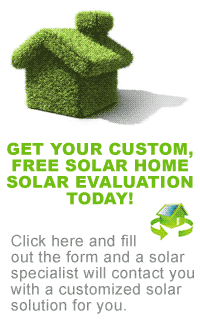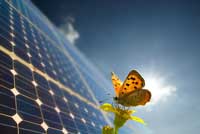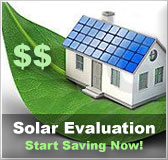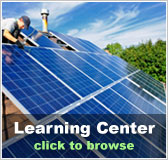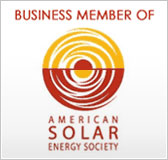 While going into solar PV is a great first step, let’s look at some overall considerations before we start sizing and specifying your solar system:
__________________________________________________________ • Many U.S. consumers buy electricity generated from renewable energy sources like the sun, wind, water, plants, and the earth's internal (geothermal) heat. Our national power grid and transmission lines allow utility companies to buy and sell power from a variety of sources. Your utility company and other independent companies have programs that allow you to buy electricity from renewable sources. This power is sometimes called "green power". Buying green power is one of the easiest steps you can take without investing in new on-site equipment. Just be sure to do some investigation and verify that you are actually getting and using ‘green power’. (www.eere.energy.gov for more information) • If you've made your home as energy efficient as possible and you still have high electric bills,; and you have solar access (see 6c); you may want to consider generating your own electricity using photovoltaic (PV) cells. New products are available that integrate PV cells with the roof, making them much less visible than typical PV panels. • The most efficient use of solar energy is for solar hot water. You can use the sun to heat your domestic water in a variety of ways. If you have a swimming pool or hot tub, you can also use solar for those. Most solar pool heating systems are cost competitive with conventional systems. Solar water heating systems have very low operating costs: it's actually the most cost-effective use of solar energy and is discussed right after this section. • Generating your own electricity from the sun with a photovoltaic
system is easier than it looks. Don’t let somebody
tell you it’s complicated – it isn’t! A few simple
initial observations and knowledge will get you started on ordering
the right components from www.solarhome.org . For installation, you can hire an experienced solar contractor,
or if you have some basic electrical skills you can do it yourself.
Just remember there are building codes and other regulations you need
to follow. There are also utility incentives to go with a PV ‘net
metering’ system that include state and federal rebates. Or
you can directly use all that sun shining on your property by storing
it in your own batteries and converting it to household voltage with
an inverter (more on this later). 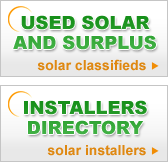 |


